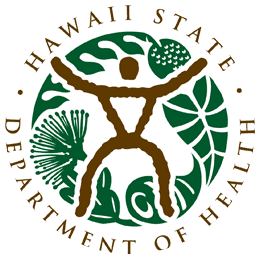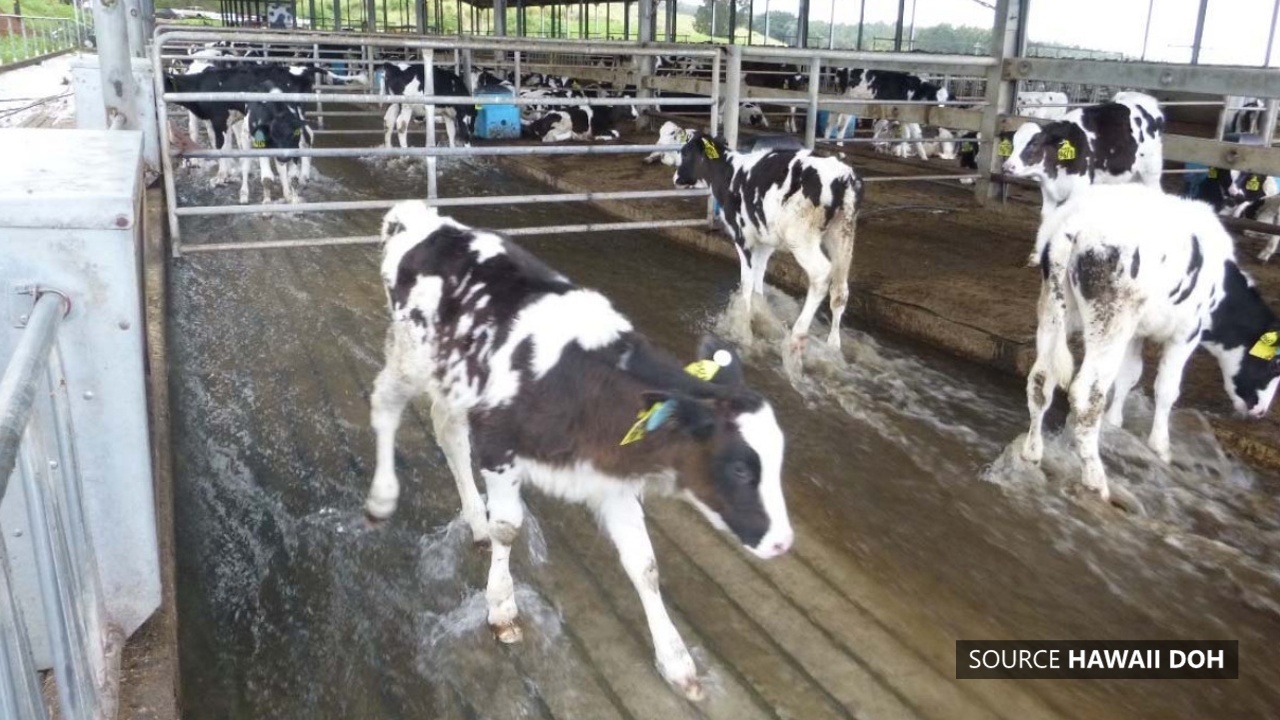(BIVN) – After months of complaints from the O’okala community, the Hawaii State Department of Health has issued a Notice of Violation and Order to Big Island Dairy, LLC for the “unlawful discharge of wastewater from the dairy’s Concentrated Animal Feedlot Operations (CAFO)” to Kaohaoha Gulch.
State officials announced in a media release Friday that the health department has ordered Big Island Dairy, LLC to immediately cease discharging wastewater to state waters, pay a penalty of $25,000 to the state, and take corrective actions to prevent future unlawful discharges from the dairy to state waters.
Further, the dairy is required to apply to DOH for a National Pollutant Discharge Elimination System (NPDES) permit required under the Federal Clean Water Act, and State of Hawaii water pollution laws, the state says. Additional DOH oversight of other past and current dairy issues is continuing.
The action comes after a concerted effort was made by the community to raise awareness about and address the issue. O’okala residents – including Council Chair Valerie Poindexter – held meetings, recorded video, and spread the word on social media. They even met with Governor David Ige on Oahu to express their concerns.
Today, the state responded.
“Big Island Dairy will immediately cease illegal discharges and pay a penalty fee for violating environmental laws,” said Keith Kawaoka, DOH deputy director of Environmental Health. “Food production and environmental protection are not competing interests, and through this enforcement action and future permitting efforts, DOH will seek mutually beneficial results for the dairy, O’okala community, and greater State of Hawaii.”
The insepction that led to the fine and order was actually carried out several weeks ago. “On March 28-29, 2017, the DOH conducted an inspection of the dairy and Kaohaoha Gulch based on information provided by community leaders,” DOH stated. “During the inspection, DOH found clear evidence of an unlawful discharge of wastewater from the dairy’s field irrigation practices. The discharge was composed of animal wastewater, biosolids and dirt.”
The Department of Health had this additional information:
 Hawaii Department of Health
Hawaii Department of Healthon May 5, 2017
Requirement for an NPDES Permit Authorizing the Discharge to State waters
Under the federal Clean Water Act and state water pollution laws, a dairy with 700 or more mature milking cows which operates as a CAFO and discharges is required to obtain and comply with an NPDES permit. NPDES permits regulate the discharges from the dairy to state and federal waters by requiring implementation of pollution reducing practices and compliance reporting. Big Island Dairy has 30 days to submit an application for NPDES permit coverage to DOH.
Requirement for the Development and Implementation of a Comprehensive Nutrient Management Plan
Big Island Dairy is ordered to develop or revise a Comprehensive Nutrient Management Plan (CNMP) that defines how the dairy treats, uses, and distributes its wastewater for crop production purposes. The CNMP must follow Federal guidelines and be approved of by the DOH before implementation. The CNMP will be an enforceable provision of the NPDES permit.
Surveys of State waters within Dairy Property
Big Island Dairy is required to conduct surveys and inspections of state waters located within the dairy property to identify all points of discharge from the dairy. The dairy must develop corrective action plans if the dairy finds any evidence of waste or wastewater within state waters due to dairy operations. DOH will review the final reports and conduct due diligence to authenticate conclusions made in the dairy’s report.
The state notes that Big Island Dairy, LLC may contest the Notice of Violation and Order and has 20 days to request a hearing.
On May 2, the Hawaii Center for Food Safety announced they are joining with Kupale Ookala to take Big Island Dairy to court for allegedly polluting the waters around the Hāmākua coast village.


by Big Island Video News1:41 pm
on at
STORY SUMMARY
O'OKALA - The dairy operation has been issued a Notice of Violation and Order for water pollution violations. The state says it now requires additional regulatory measures to ensure protection of state waters.